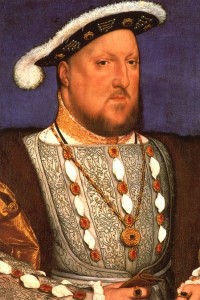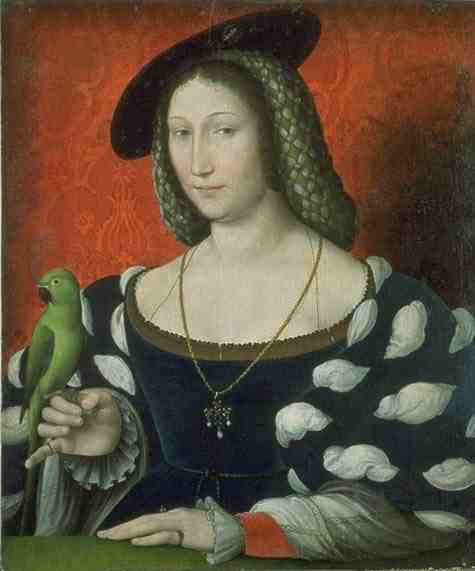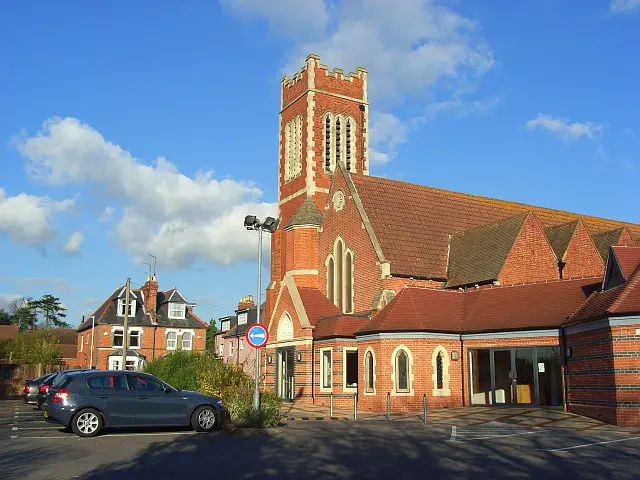
On this day in history, 18th September 1544, Henry VIII rode triumphantly through the streets of Boulogne after the French surrendered, ending the Siege of Boulogne, which had started on 19th July 1544. The English forces then set about fortifying the town.
Chronicler Charles Wriothesley records:
"This yeare, the 13 of September, 1544, the towne of Bulleine was given up to the Kinges Majestie, and the 14th day the French men departed out of the towne, with as much goods as they might carye both men and women, besyde that the waggons carryed, and the Kinges Majestie entred the sayd towne the 18 of September with great tryumphe; and the 20 day there was a solempne generall procession kept at Pawles, with Te Deum songe, for the victorye of the Kinges Majestie, and many fyers made in the citie, and so after in every part of the realme."
And Chronicler Edward Hall records:
"The. xviii. day, the kinges highnes hauyng the sworde borne naked before him, by the Lorde Marques Dorset, like a noble and valyaunt conqueror rode into Bulleyn, and the Trompetters standyng on the walles of the toune, sounded their Trompettes, at the time of his entring, to the great comfort of al the kynges true subiectes, thesame beholdyng. And in the enteryng there met him the duke of Suffolk, and deliuered vnto him the keyes of the toune, and so he roade toward his lodgyng, which was prepared for him, on the South side of the toune. And within two dayes after, the kyng rode about al the toune, within the walles, and then commaunded that our Lady Church of Bullein, should be defaced and plucked doune, where he appoynted a Mount [fortification] to be made, for the greate force and strength of the toune."
Notes and Sources
- Wriothesley, Charles (1875) A chronicle of England during the reigns of the Tudors, from A.D. 1485 to 1559, Volume 1, Camden Society, p. 149.
- Hall, Edward (1809) Hall’s chronicle: containing the history of England, during the reign of Henry the Fourth, and the succeeding monarchs, to the end of the reign of Henry the Eighth, in which are particularly described the manners and customs of those periods. Carefully collated with the editions of 1548 and 1550, printed for J. Johnson; F.C. and J. Rivington; T. Payne; Wilkie and Robinson; Longman, Hurst, Rees and Orme; Cadell and Davies; and J. Mawman; London. p.862.



Most conquerors don’t ask for Churches to be knocked down but here we have Henry doing so. Most gave thanks at the Church but Henry has become an iconoclast and even a French Church is not being left alone. I am sure he also rebuilt the town and the battlements and his triumph was a great spectacle but his victory was also costly. In fact he sold it back to France, with the deal being done after his death.